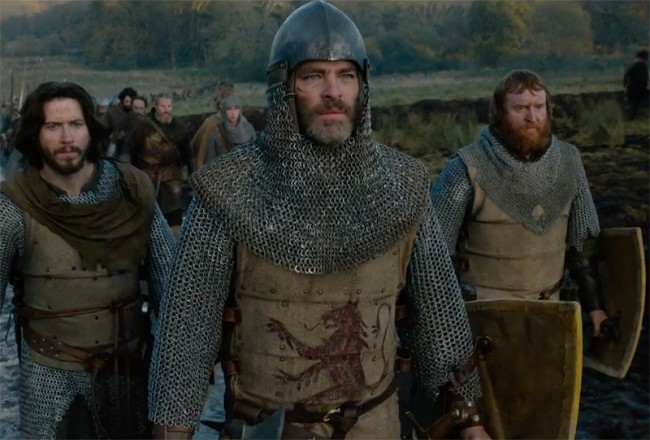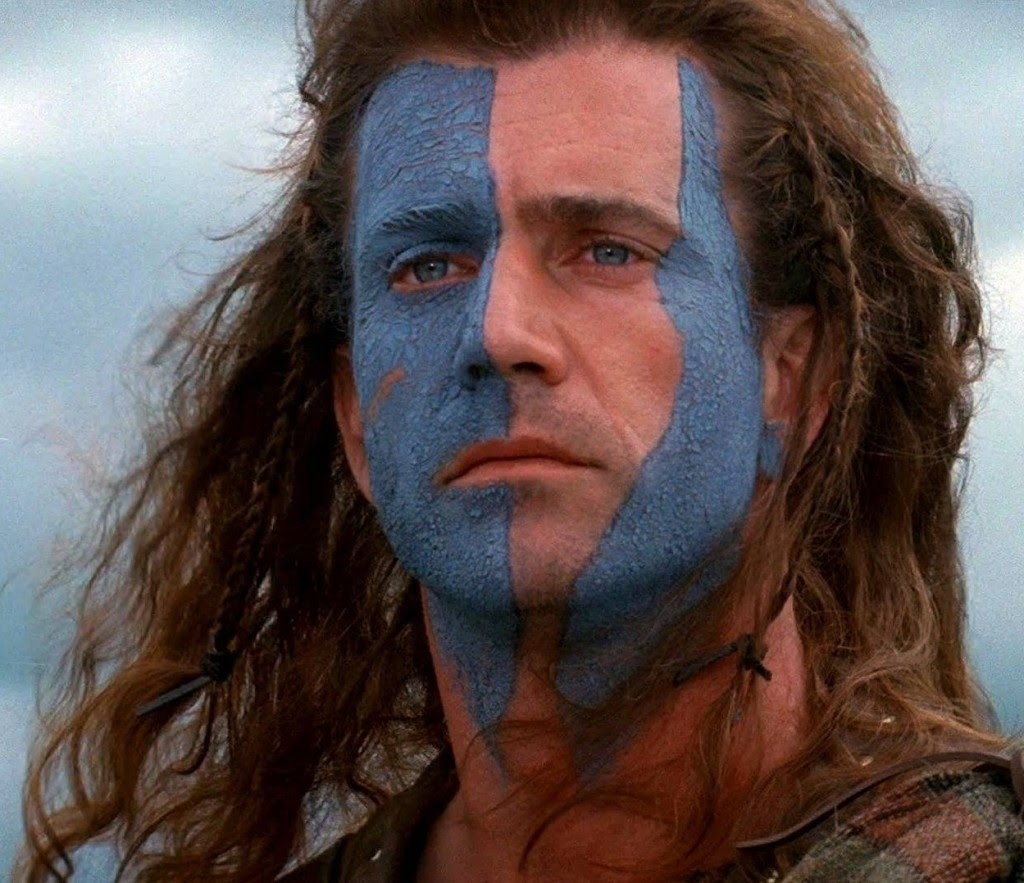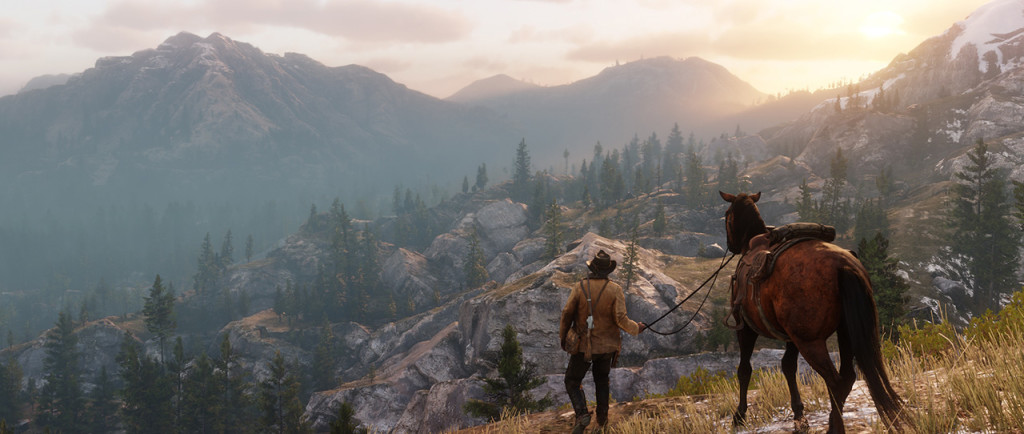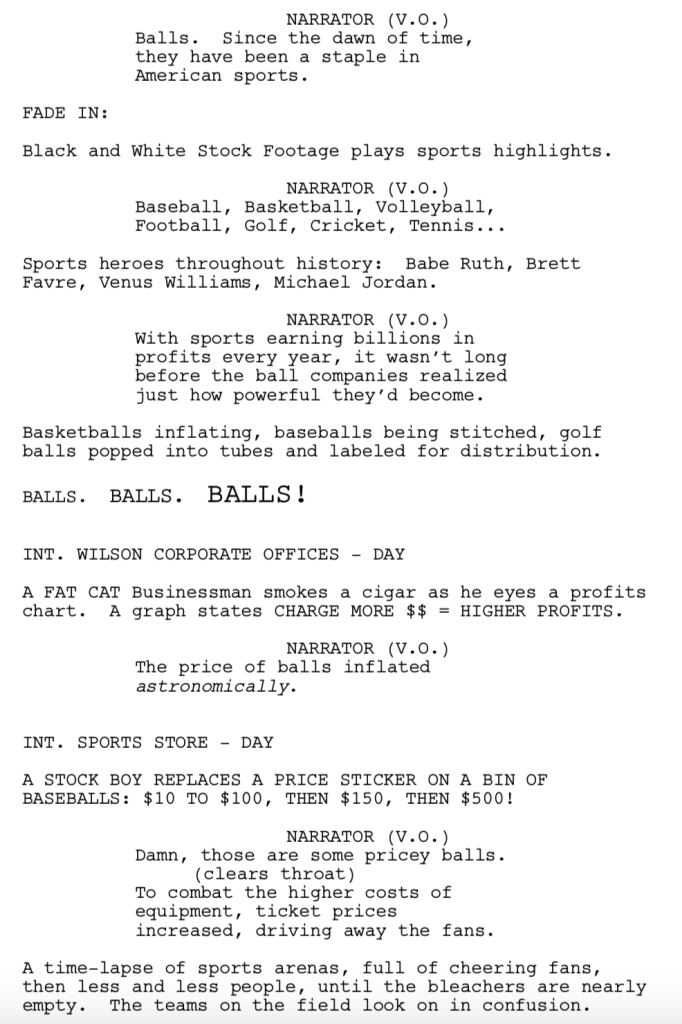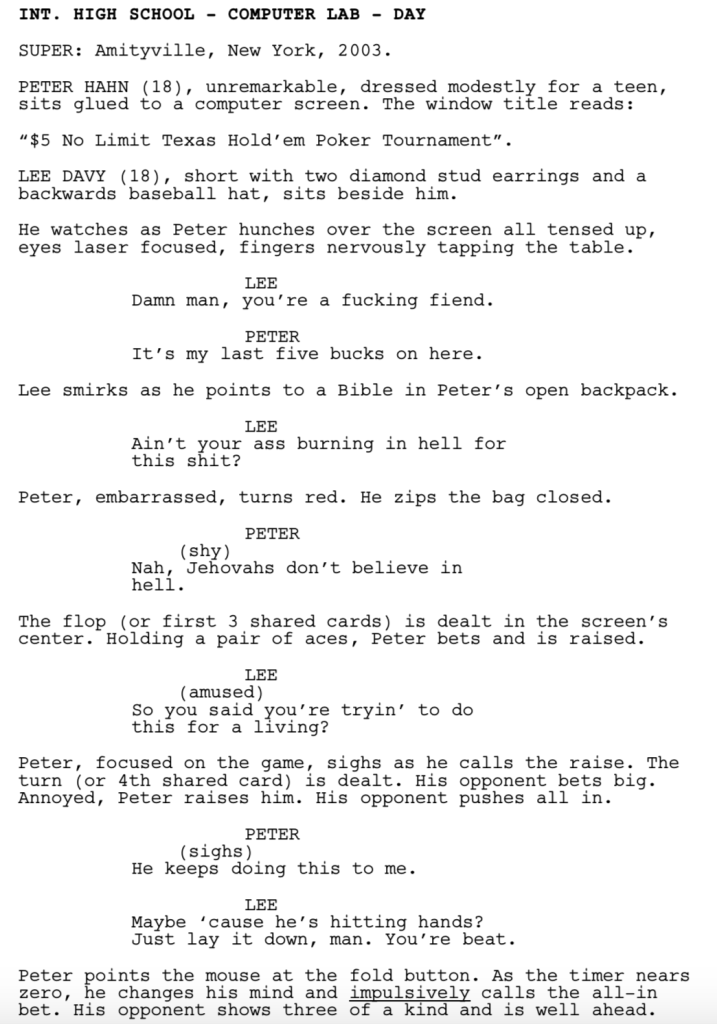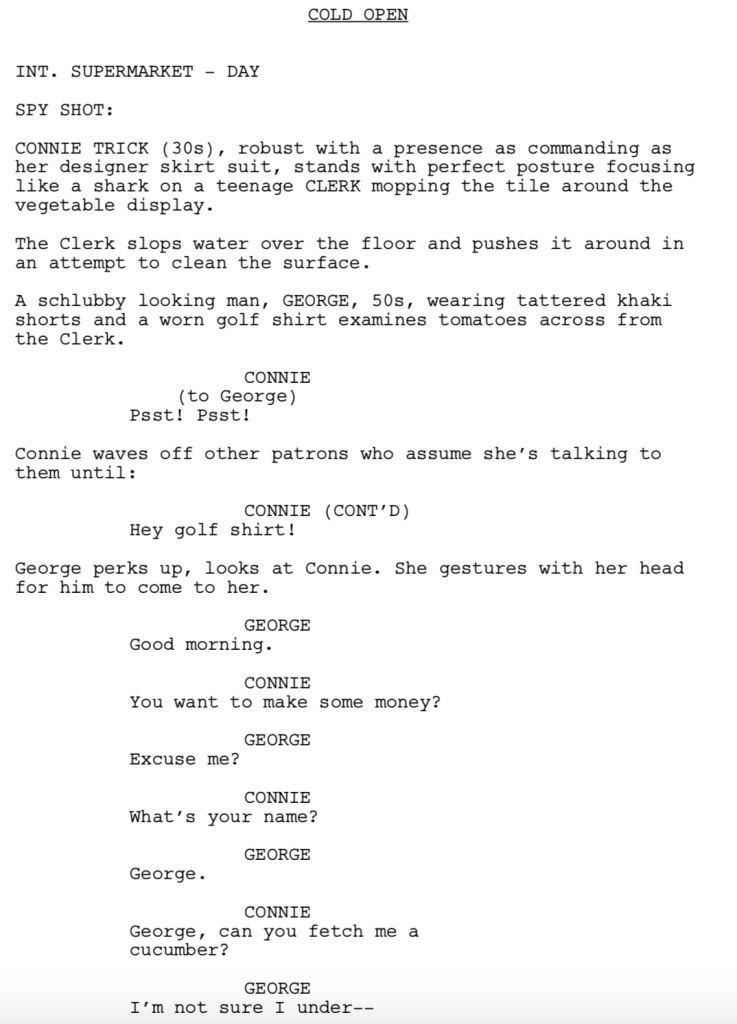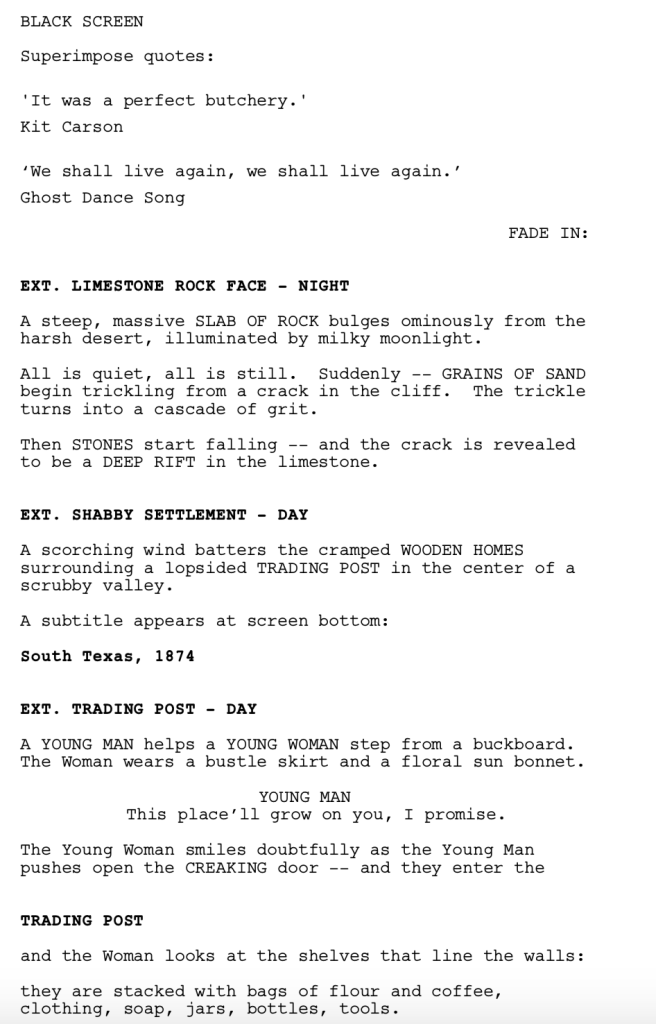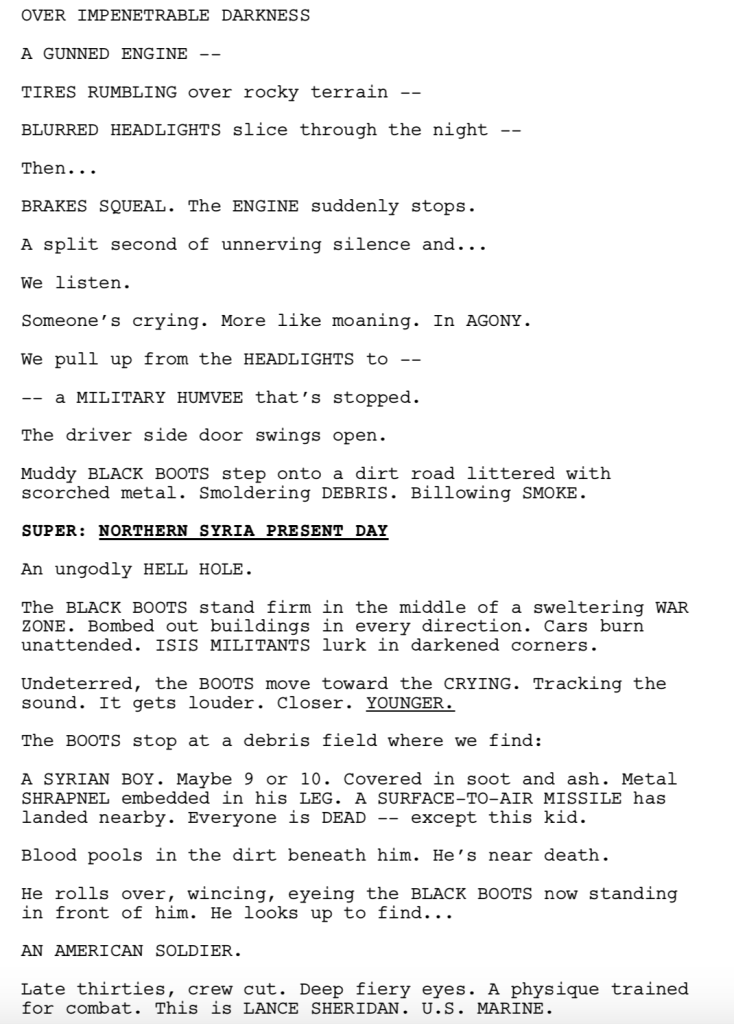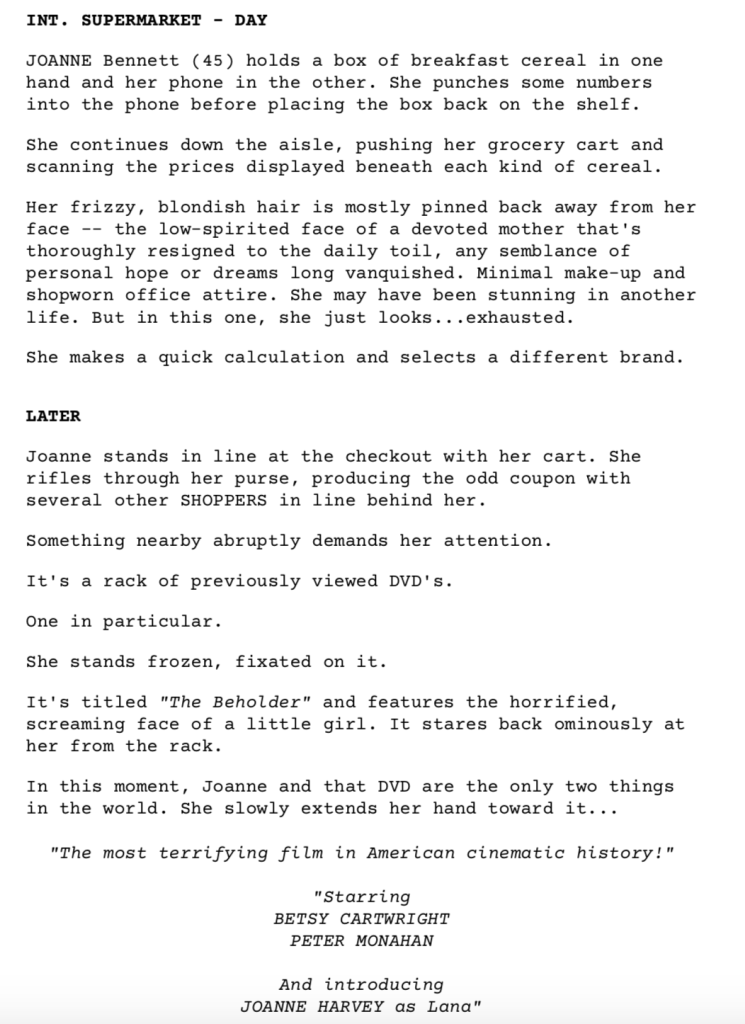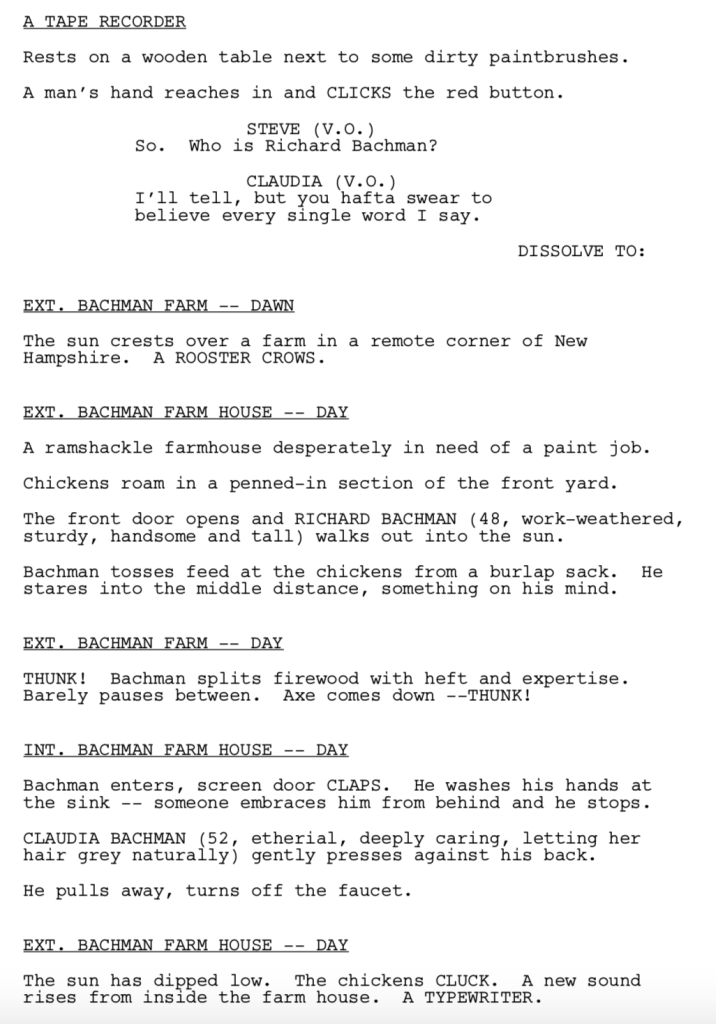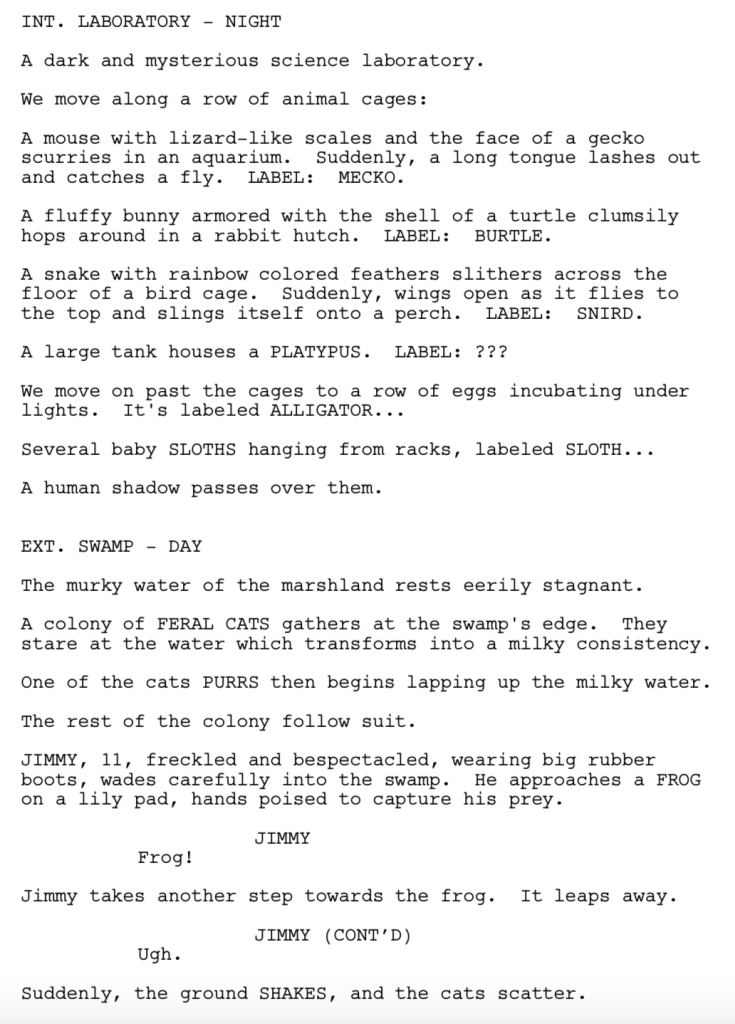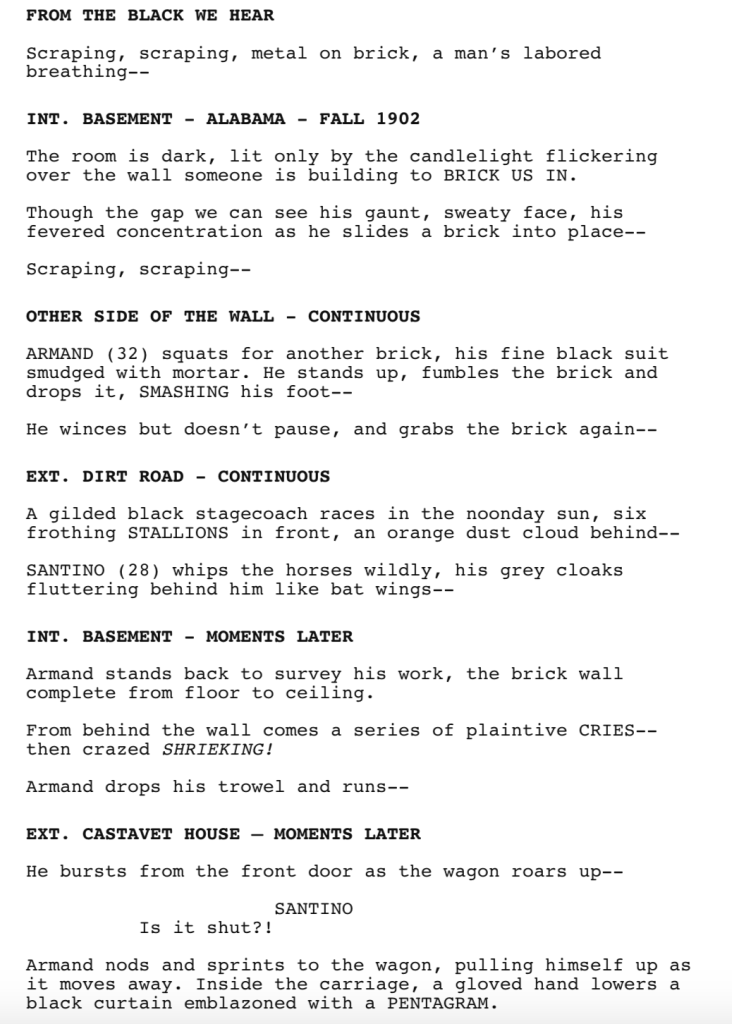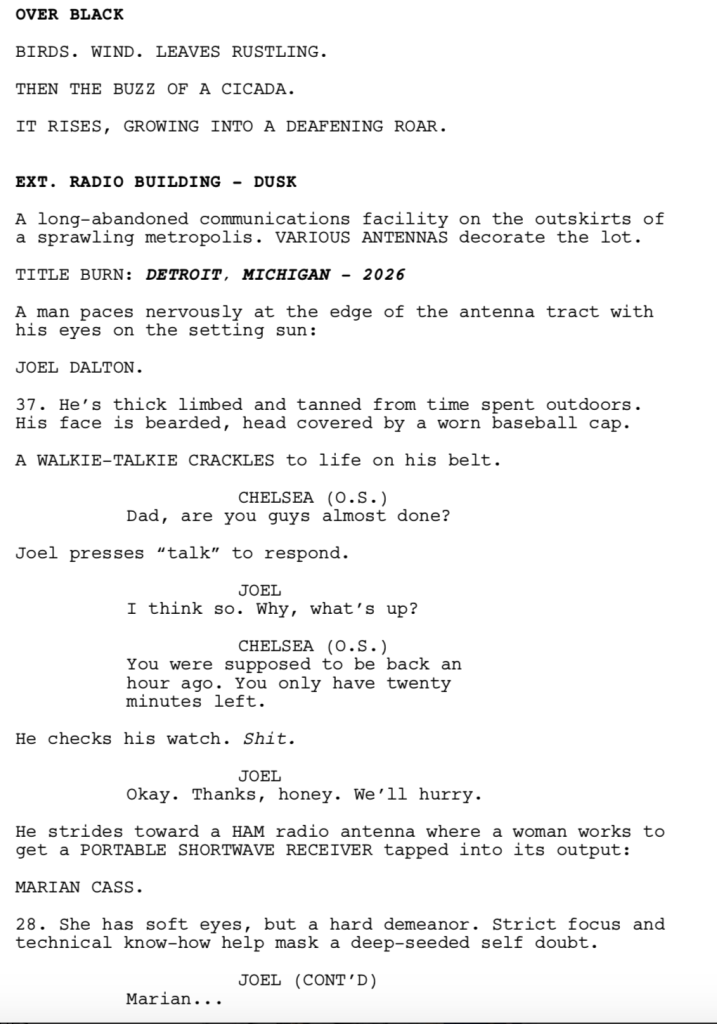Search Results for: the wall
Today’s Braveheart sequel review comes with a trio of must-know screenwriting lessons.
Genre: Period/Action
Premise: In the 14th Century, Scottish King, Robert The Bruce, attempts to free his country from England once and for all.
About: This film has been making noise for numerous reasons. First, it positioned itself as an obvious spiritual sequel to Mel Gibson’s Braveheart. For those who don’t remember, Robert the Bruce was the troubled Scottish noble in that movie who waffled back and forth between supporting and undermining William Wallace. Outlaw King was directed by David Mackenzie, whose only other well-known movie was 2016’s Hell or High Water. This would explain how Mackenzie was able to get fast-rising star Chris Pine to play Robert the Bruce. The film received a 120 million dollar budget from Netflix, where it debuted this weekend.
Writer: Bathsheba Doran & David Mackenzie & James MacInnes (additional writing by David Harrower & Mark Bomack)
Details: 120 minutes
While it pains me to say it, Outlaw King is not a good movie. However, I’m ecstatic that I saw it. I don’t think there is a better screenwriting lesson out there than watching Outlaw King and Braveheart back to back. Each creator tells what is, essentially, the same story, with one succeeding and the other failing. This allows you to directly compare why Braveheart succeeds and Outlaw King does not. It’s a fascinating exercise.
If you didn’t have time to check Outlaw King out, it introduces us to Robert the Bruce during his surrender, along with the rest of the nobles, to King Edward of England. Afterwards, Robert heads back to Scotland, where he marries the goddaughter of Edward, Elizabeth. Since Robert lost his previous wife to childbirth, he’s not keen on falling in love again, and refuses to consummate the marriage.
A couple of years later, Robert is shaken when the English celebrate wildly at the capture, torture, and killing of William Wallace. He decides he doesn’t want to play by the English’s rules anymore (or pay their taxes), and constructs a plan to gain independence. This requires persuading a high-ranking Lord of Scotland to join him. And when this Lord doesn’t agree, Robert kills him, allowing him to don the sole crown of Scotland. Robert is now their king.
Robert comes around on the marriage thing, falling in love with his wife, who helps him plot his attack. Robert must round up the rest of the Scots (who are divided into clans) and convince them to help. Some of them do but most don’t. Later, Elizabeth is kidnapped by the English, adding an immediacy to the whole ordeal. Robert arrives at the hill where the big battle with the English will take place, only to realize he’s vastly outnumbered. He inspires his men to fight anyway, where he leads an impossible victory, finally gaining freedom for his country.
Okay, where do I begin?
There are three primary reasons why Braveheart is leaps and bounds better than Outlaw King. The first is that William Wallace is the most active hero in cinema history. Any screenwriting class you go to will promote the importance of an active hero. This is because when your hero really wants something, he’s always going to be moving. He’s always going to be charging forward. This is when movies work best, when the narrative is charging along, full steam ahead.
William Wallace wants freedom. He says it over a dozen times in Braveheart. And he’s willing to do anything to get that freedom. If you watch Braveheart, you’ll notice that the only time we’re not charging forward to the next battle, or in the battle itself, is to set up when the next battle is coming. William Wallace MUST obtain freedom, and will fight as many battles as he can to do so.
Robert the Bruce, meanwhile, is a more reserved character. He wants freedom, but he doesn’t want it at all costs. And the narrative reflects this. We’re moving forward towards a goal – freedom – but we do so at a measured pace, reflective of the man trying to achieve it. I’m not saying that movies don’t work with reserved heroes. I’m only saying that it’s a lot easier to make active heroes work, due to the way they turbo-charge a narrative. This is even more important for long period-piece movies, which have a propensity to get stuck in the mud. Screenwriter Randall Wallace and Mel Gibson knew this. I’m not sure Mackenzie does.
The second reason is that Randall Wallace and Gibson gave William Wallace personality. Wallace could be angry at times, tender (to his wife), insane (when he’s revving up his army), funny, outspoken. He was a very expressive character, which makes him pop off the screen more. Meanwhile, Robert the Bruce doesn’t talk much. He’s someone who speaks through his eyes. He’s reserved most of the time. And these characters are very difficult to make work. You’re basically hoping that the actor can create an amazing character through their eyes alone. And Pine doesn’t pull it off. He’s okay. But outside of a single moment where he surprisingly kills a rival, he’s kinda boring. This is why I always tell screenwriters writing these quiet reserved heroes to think twice about it. All you need to do is watch William Wallace compared to Robert the Bruce to see why.
But the biggest lesson I learned from comparing these two movies is how important good scene writing is. Bravehart has, literally, a dozen great scenes. Most movies have three great scenes, if they’re lucky. But what’s awesome about Braveheart is that each scene or sequence of scenes, is like a mini-movie. There’s very little patchwork writing here, where you include a scene just to get a character from point A to point B. Instead, most of the scenes have a setup, a conflict, and a resolution.
A marriage scene starts off with everyone happy and dancing. Then the English show up. They take the bride as a part of their new ‘First Rites’ amendment, whereby the English get to have sex with all newly married Scottish brides. Or when the English try to rape Wallace’s wife, then Wallace beats them off of her, sets her off to meet him at a rendezvous in the forest, but she’s instead captured, and has her throat slit. Or the following scene, where Wallace arrives slowly on his horse, surrendering, before surprisingly attacking the English, inspiring an uprising, and murdering the man who killed his wife.
Scene after scene is like that. Beginning, middle, end. Beginning, middle, end.
With Outlaw King, there is virtually none of that. Most of the scenes are fragments. For example, the scene I mentioned above, where the Scottish are having a post-wedding party, only to watch the English arrive and take the bride. Outlaw King gives us the party part, but doesn’t introduce the conflict that turns the scene into a memorable one. They show the celebration and that’s it. This occurs throughout the film, where we’re only getting these fragments of scenes which never build to anything. It’s a big reason why the film feels so unsatisfying.
Finally, the script struggles to orient us throughout the story. We know that Robert the Bruce is trying to obtain freedom, but we’re not always sure how he’s going about it. I remember in Braveheart that each time they conquered a leg of the goal, they would have a scene where they’d clearly lay out what the next objective was. This ensured that we were always in the loop about what William Wallace was doing and why. Here, the journey is less linear, and therefore harder to follow. This required more explanation from the writers, which they didn’t provide.
There was one scene, in particular, where Robert and his army were on a river, and they’re all of a sudden attacked by someone. These people seemed more ragtag than the English army, so I assumed they were someone else. But even now, I still don’t know who they were. Questions like that would pop up regularly. This is why I tell writers that if you’re going to write a period piece or any movie with an extensive mythology, you have to be extra clear about what’s going on. Because while you clearly know who this ragtag river army is, we don’t, unless you tell us.
I wish I could recommend this on its own. Unfortunately, I can only recommend it to screenwriters keen on learning a few major lessons. Catch it back to back with Braveheart and watch your screenwriting IQ soar.
[ ] What the hell did I just watch?
[x] wasn’t for me
[ ] worth the stream
[ ] impressive
[ ] genius
What I learned: Beginning, middle, and end to your scenes. Set up a scenario, throw in some conflict, have your characters try and resolve it, they either succeed or fail.
Genre: Comedy
Premise: In the fast-rising sport of Bricklaying, an anti-doping agent and disgraced former champion must take down the champion’s former nemesis, who they suspect is using a bricklaying-enhancement drug known as “Brick Dust.”
Why You Should Read: Bricks of Glory was inspired by a real life event called the Bricklayer 500 which takes place in Vegas every year. They take the top 20 bricklayers from around the world and compete to see who can build the highest (and most structurally sound) brick wall in 60 minutes. A friend of mine’s husband won the Regional Competition in my area so I went to Vegas to watch the show and attended the World of Concrete convention as research. Man, what a trip. I mean they seriously treat this like a major sporting event! I find it so hilarious! So in my script, I completely exaggerate this and make it a much bigger, funnier, spectacle of a sport. Bricklayers use flair, like lighting their walls on fire and juggling bricks, and the competition is so fierce, they resort to taking performance enhancing drugs. I’ve put a lot of work into this script, even doing table reads with stand up comedians to help me punch up the jokes. But if you want to see what inspired it, here’s a video recap of the Bricklayer 500 which should sell it better than I ever could: https://youtu.be/zR69ZFdldH0
Writer: Alison Parker
Details: 103 pages
It’s been 20 years, but the sequel to one of my favorite movies ever – Braveheart – has FINALLY come out (The Outlaw King). Yes, the adventures of Robert the Bruce, starring Chris Pine, arrived on Netflix this morning. The film is stuck at 60% on Rotten Tomatoes. But keep in mind that most of those reviews came in before the director cut 20 minutes from the film after festival showings, massively streamlining it. I’ll be watching Braveheart 2 this weekend and reviewing it Monday.
Today, we’re taking on one of my favorite AO comedy premises of 2018. I’m really excited about this since comedy gets a bad rap on this site. This sounds like a truly fun idea. And while kooky sports comedies have fallen out of favor in recent years, it’s a genre that can easily get hot again. Will Bricks of Glory be the script to do it? Let’s find out!
In the 1960s, when sports like baseball and football grew to record-breaking ratings, greedy sports CEOs looking to take advantage of their fans began charging unheard of sums for balls. The strategy backfired, and within a couple of years, fans completely abandoned ball-centric sports, sending all major leagues into bankruptcy. All of this allowed for non-ball-related sports to flourish, which is how bricklaying became the biggest sport in the U.S.
It’s now 1987 and the star of the sport is 27 year old Wayne Walker, whose theatrical style and killer catch-phrase (“Get laid!”) made him an instant celebrity. His number one fan is his young daughter, Harley, who couldn’t be more proud of her dad. That is until it’s discovered Wayne is using steroids to win! The disgraced champion is stripped of his trophies and given a 20 year ban from the sport!
Cut to 2007 and Harley now works for the World Anti-Doping Agency. Harley is given a task from the president of the agency himself. There’s a new super-powerful steroid being used in bricklaying called “Brick Dust.” The president asks Harley to reconnect with her estranged dad, get him to enter the Bricklayer 500, and exploit his contacts to identify who’s using the steroid so they can shut them down. Along the way, Wayne figures out what’s going on, but forgives his daughter, then enlists her as his bricklaying assistant. The two then team up to try and win the Bricklayer 500 together!
From the moment bricks started getting laid in Bricks of Glory, things were uneven. Alison invents a world where balls become too expensive and all sports collapse, paving the way for bricklaying to become the biggest sport in the world. My issue with this is that you don’t need it. You could popularize bricklaying without having to mention other sports. By introducing this loopy mythology, you rewrite the history books. I mean, we’re supposed to believe that since the 1980s, there has been no basketball, baseball, football, or soccer in the world. I know this is a comedy but that’s some MAJOR buy-in for a premise that didn’t need it.
From there, we have several time issues. The first part of the movie takes place in 1987. A featured scene in that section has our hero being tazed. But police didn’t have tazers in 1987. We then jump forward 20 years, where the rest of the movie takes place. So this movie takes place in 2007? That feels like a really odd year to set a mainstream comedy in if it doesn’t need to take place in that year for the plot to work. If you’re going to set a movie close to modern day, wouldn’t it be smarter to just set it in modern day?
Just to take you into the mindset of the seasoned reader, I’m assuming one of two things at this point. One, that the script is old and the writer never updated the timeline. Or two, they wanted Wayne’s heyday to be in the 80s because it’s funnier than the 90s. They also didn’t want Wayne to be too old when his ban was over, therefore choosing a 20 year ban (making him 47) as opposed to 30 years (making him 57) and accepted the year 2007 as the story year because they didn’t want to do the hard work to figure out how to get us to 2018.
I’ve told you this a million times already but I’ll say it again. If a script starts sloppy, it’s almost impossible for it to recover. I’ve already made so many judgements by this point that I’m nowhere near where the writer needs me to be – which is inside the story, not questioning anything. Again, I realize this is comedy. You can’t apply too much logic. But I also know that comedy works best when it’s simple. And it seems like way too much effort was put into an opening that could’ve easily introduced this premise in a simple way. The concept of bricklaying as a sport alone is funny! You don’t need a bunch of nonsense surrounding it.
As for the plot, I liked that the story was built around a family relationship. I think that’s smart. It grounds the story. It allows us to connect to the characters, as we’re rooting for this broken relationship to be fixed. I just found the whole steroid thing to be uninspired. Who cares about steroids in sports these days? Nobody. But there’s a way bigger screenwriting-related issue at play here. When you come up with a unique concept, you want the problems that arise to be related specifically to that concept. In other words, steroids can be applied to a hundred sports. What’s unique about bricklaying?
I like the idea that people are cheating in the sport. So maybe they suspect that the villain is using an illegal type of brick that’s 10% lighter or something. Or he’s using some caulk (is that what it’s called) that’s 50% stickier, allowing him to stack bricks quicker. Use your imagination. But steroids? I feel like I’m stuck in a time-warp with that storyline.
Bricklaying as a sport is a funny premise. Let’s not overcomplicate it. Set the story in the present. Wayne has been the sport’s poster child ever since videos of him bricklaying went viral a year ago. He’s recently gone Hollywood and isn’t doing the work (think Ronda Rousey). This has allowed a new young Justin Bieber like phenom to gain popularity (who beats him in the regionals). With the Bricklayer 500 coming up, everyone’s picking sides. Use the Rocky 4 structure. Wayne fears that he’s too old to hang with these young guns (which is funny since the sport has only been around for a year and he’s 28), and has to train with the original bricklayer who started it all, go “back to his roots” so to speak, to defeat this young upstart.
Script link: Bricks of Glory
[ ] What the hell did I just read?
[x] wasn’t for me
[ ] worth the read
[ ] impressive
[ ] genius
What I learned: Times, ages, and dates. Readers are really good at picking up weird time-related issues in scripts. Which is relevant because timing is always changing in scripts. You might decide in your third draft, for example, that your hero’s brother should be 15, not 12. But then you forget to change the age later in the story, when you’ve jumped forward 5 years. You introduce this older version of the brother as 17 (12+5) as opposed to 20 (15+5). When you forget to do this stuff, it looks sloppy. It feels like you’re not on top of things. And that’s how I felt here. Just the fact that the story randomly takes place in 2007 is bizarre to me. And most readers are going to notice that. As annoying as it is, get your times, ages, and dates sorted out before you send your scripts anywhere. It seems like a small thing. But readers tend to judge this stuff harshly.
Don’t do it don’t do it don’t do it don’t do it. These are the words that have been assaulting my brain every hour for the last seven days. That would be when Red Dead Redemption 2 came out. Since then, I’ve gone to Amazon.com every hour on the hour and stared at a sleek picture of a brand new Playstation 4. Don’t do it don’t do it don’t do it don’t do it. I’ve wanted a Playstation 4 forever. But I’ve specifically not purchased one because I know I’ll waste hours of time with it. That plan has worked up until seven days ago. But every time I see a commercial for that rootin-tootin freakin video game, I want to buy it. I want to roll in its digital dirt. I want to swim in its plethora of pixels. So far I’ve held off. But I don’t know how much longer I can last.
Luckily, I found a Western for this week’s amateur offerings. That’s helped some. As for the rest of the scripts, we’ve got an electric variety. Pilots. Comedies. Thrillers. Oh, and one of these “Why You Should Reads” is quite inspirational. A lesson in assertiveness and exploring every contact you’ve got, no matter how small it seems. Check it out!
If you’ve never played Amateur Offerings before, you’ve been deducted 4 Scriptshadow points. A vote from you could mean the difference between a screenwriter starting his career and spending the rest of it in obscurity. Read as much of each screenplay as you can. Afterwards, cast your vote for your favorite script in the comments section. Voting closes on Sunday night, 11:59pm Pacific Time. Winner gets a review next Friday. — If you’d like to submit your own script to compete in Amateur Offerings, send a PDF of your script to carsonreeves3@gmail.com with the title, genre, logline, and why you think your script should get a shot.
Good luck to all!
Title: Bricks of Glory
Genre: Sports Comedy
Logline: In the fast-rising sport of Bricklaying, an anti-doping agent and disgraced former champion must take down the champion’s former nemesis, who they suspect is using a bricklaying-enhancement drug known as “Brick Dust.”
Why You Should Read: Bricks of Glory was inspired by a real life event called the Bricklayer 500 which takes place in Vegas every year. They take the top 20 bricklayers from around the world and compete to see who can build the highest (and most structurally sound) brick wall in 60 minutes. A friend of mine’s husband won the Regional Competition in my area so I went to Vegas to watch the show and attended the World of Concrete convention as research. Man, what a trip. I mean they seriously treat this like a major sporting event! I find it so hilarious! So in my script, I completely exaggerate this and make it a much bigger, funnier, spectacle of a sport. Bricklayers use flair, like lighting their walls on fire and juggling bricks, and the competition is so fierce, they resort to taking performance enhancing drugs. I’ve put a lot of work into this script, even doing table reads with stand up comedians to help me punch up the jokes. But if you want to see what inspired it, here’s a video recap of the Bricklayer 500 which should sell it better than I ever could: https://youtu.be/zR69ZFdldH0
Title: The Boom
Genre: TV – One Hour Drama
Series Logline: In the early 2000s, dreamers, misfits, prodigies, and hustlers swarm to Las Vegas in search of fame and fortune during the birth of the poker boom.
Pilot Logline: After becoming an online poker sensation, a gambling addict goes to Vegas to try his hand at the real thing, meanwhile a tortured ex-gangbanger kidnaps his cousin, a sports-betting prodigy, and drives him to the same casino hoping to capitalize on his skills.
Why You Should Read: In 2003, an amateur poker player named Chris Moneymaker won the World Series of Poker, sparking a massive increase in poker play all over the world. College students became millionaires playing online poker and moved to Las Vegas to live it up, while the existing live pros became celebrities. The Boom seeks to leverage the unique stories and characters from this time period to create the first ever series which chronicles the lives of professional gamblers in Las Vegas. It’s an ensemble similar to The Wire in that it follows a wide variety of characters and not all of them cross paths. The pilot starts with an 11 page prologue that culminates with the event that launches the series and from then on follows two separate storylines featuring four main characters, all struggling to survive in Las Vegas at the start of the poker boom. One of the things I’m most proud of with this pilot is that non-gamblers have found it accessible—so if you don’t know a thing about poker, please don’t let it prevent you from reading!
Title: Legal Pursuit
Genre: Comedy
Logline: A mocumentary following the legal exploits of the personal injury law firm Fraud, Trick & Brown and their pursuit of fortune, fame and sometimes justice.
Why You Should Read: In America today if you accidentally nail your hand to a wall because of a faulty nail gun, you’ll want to sue the nail gun manufacturer and there are plenty of lawyers that’ll nip at your heels for the case. However, if your teenager went to the hospital for eating a Tide Pod and you want to sue the detergent company for a lack of warning not to eat it, who are you going to call? You’re going to need a more ethically flexible attorney willing to blame someone else for you.
Legal dramas tackle social injustices, changing times, and debates about what real justice is and how the law should work. Legal Pursuit is a half-hour single camera comedy that shows how the legal system sadly works and follows the attorneys of Fraud(pronounced Freud), Trick and Brown. The lawyers that’ll lie, cheat and manipulate everyone they can to defend you in court and split the settlement 70/30… 60/40… Fine: 40/60!
Desperate for business in this bad economy, each client is a potential win that will keep the lights on for one more week, get them that fancy electric car, pay off their new boat or afford them a vacation to Hawaii. Oh! Legal fees, surprise witnesses and experts need to be covered too! Enjoy! And if you don’t, I’d love to hear thoughts from the SS community to help make this the best it can be.
Title: THE SHADOWED
Genre: Horror-Western
Logline: An outlaw and his gang must team-up with a company of Texas Rangers to battle with the resurrected ghosts of vengeful Navajo braves besieging an isolated border town.
Why You Should Read: My script was shortlisted in The Tracking Board’s Launch Pad competition, allowing me to become a TB Alumni. I wrote the script after chatting with stuntman Ian Van Temperley, who hoped to be able to do the horse stunts for The Shadowed if it ever went into production. Whilst doing the stunts for the TV series Galavant, Ian Van Temperley shared my Shadowed script with the show’s creator Dan Fogleman. Dan read the script and wrote back saying this: “Dan Fogelman here from Galavant. I wanted to let you know that I read your script and was very impressed! The best thing about the script was the outlaw character Wakes, along with how well your action sequences were not only crafted, but written. It’s a very hard thing to do well, and you clearly know how to describe them. Most action sequences get hard to follow and hard to “read” – that’s not at all the case here. You have a great main character and a terrific action movie here. I enjoyed reading it.”
Title: Endangered 6
Genre: Thriller
Logline: After a widowed U.S. war vet and his estranged daughter check into a Manhattan hotel to reconnect, they soon find themselves alone and trapped in the building only to discover they’re at the center of a terrorist conspiracy that will kill hundreds on the streets of Manhattan, but they’re the only ones who know… or have the power to stop it.
Why You Should Read: I’ve been honing my craft for a while and have a few specs on the hard drive to show for it. This one was a finalist last year in a thriller screenplay contest and I’d like to see how it might do here with the Scriptshadow crowd. When I set out to write this my goal was to write a fast paced thriller with a broken relationship between a father and daughter at its emotional core. It’s Panic Room on steroids. Hope you feel the rush too!
Holy Slutty Halloween Costume! There were a TON of Halloween Amateur Offerings entries. If I’d known there were going to be this many, I would have created a more elaborate competition. Alas, it’s a cut-throat business out there. As per the rules of the game, only five of you made it in. It wasn’t easy pickings. I tried to cover multiple sub-genres so not everything felt the same. Unfortunately, this meant that some strong contenders didn’t get in. Who knows, maybe I’ll throw a few of these into a future competition.
Since I have to stay out of the comments (can’t be persuaded by the reactions), I’ll be checking out the latest Halloween movie this weekend, then review it on Monday. There’s a lesson in “Halloween” for aspiring screenwriters, by the way. One of the things that will happen when you break in, is that you’ll meet with a bunch of people in town. Some of these people will own famous old properties. If you can come in and pitch a fresh take on one of these properties, they may pay you to write a draft. David Gordon Green and Danny McBride came up with this idea of, “What if we pretended that none of the Halloween sequels existed and made this a straight sequel to the original Halloween?” The studio liked that take and allowed them to make the movie. So when that opportunity comes for you, be ready! Have a take formed and a pitch prepared. Even if they had no intention of bringing it up themselves. “Hey, I know you guys own Nightmare on Elm Street. I have an idea for a sequel.” What are they going to say? “We don’t want to hear it?” Of course they do. So be ready!
If you haven’t trick or treated at the Amateur Offerings house before, here’s how the game is played. Read as much of each screenplay as you can, then vote for your favorite script in the Comments Section. Voting closes on Sunday night, 11:59pm Pacific Time. Winner gets a review next Friday. — If you’d like to submit your own script to compete in a future Amateur Offerings, send a PDF of your script to carsonreeves3@gmail.com with the title, genre, logline, and why you think your script should get a shot.
Oh, and one last thing. Move over Trajent Future. Out of the way Larry the Lyft Driver. Sayonara Orbitals. I’m pretty sure “Slothigator” just became the newest Scriptshadow Meme.
Title: THE EVIL EYE
Genre: Horror
Logline: Something terrifying awakens within a middle-aged mom when she finally decides to watch the now-classic horror film that she starred in as a child.
Why You Should Read: To this day, rumors persist of a supposed “curse” attached to the modern classic horror film, “The Beholder”. The movie enjoyed both critical acclaim and box office success upon its premiere in October of 1983, and it is still commonly hailed as being among the most terrifying films in the history of American cinema.
But the film’s production was plagued by an endless string of on-set accidents, misfortune and tragedy. And the “curse” only seemed to intensify in the months and years following the movie’s release with the mysterious and untimely deaths of many of the cast and crew, including director John Friedman and lead actors, Betsy Cartwright and Peter Monahan.
Only nine years old at the time, the film’s youngest star, Joanne Harvey, seemed poised to take the movie industry by storm. But in the wake of an auto accident that claimed the lives of her parents after the premiere of “The Beholder”, Joanne Harvey disappeared from Hollywood, never to be heard from again.
Title: The Bachman Books
Genre: Horror/Biopic
Logline: A freelance journalist becomes entangled in one of the greatest literary coverups of the 20th century. Based on a true lie.
Why You Should Read: This is based on the true story of the journalist who discovered that Stephen King was writing under the pseudonym Richard Bachman – and I should know, because that journalist is me, Steven P. Brown. – Consider this a sidebar to the real story, which involved a simple trip to the library of congress, where I pulled the copyrights to the Bachman books. Boring! What if, in my pursuit of the truth, I got roped into a terrifying game of cat and mouse with a man claiming to be the real Richard Bachman? You mention that a surefire way to break in as a screenwriter is to write a biopic, so I’ve put my own twist on it with a horror/thriller that I hope would make Mr. King himself proud.
Title: Slothigator
Genre: Horror Comedy
Logline: A dysfunctional family must work together when a giant, man-eating sloth/alligator hybrid creature wreaks havoc at their Louisiana amusement park.
Why You Should Read: Despite it’s admittedly bonkers premise, Slothigator offers a healthy share of sentimental family drama to accompany its creature-feature gore fest. By providing the audience with a well rounded family, we believe Slothigator goes beyond its genre and would be able to connect with the audience at a more personal level. After months of sleepless, research filled nights, we can confirm that the science presented in this script is 100% accurate.
Title: In the Basement
Genre: Family Horror
Logline: When some neighborhood kids go trespassing in an abandoned house, they accidentally open the door to Hell, and have to battle a crazed demon horde to close it back before the Devil escapes.
Why You Should Read: Poltergeist is easily one the best, scariest movies ever made, yet somehow it’s for the entire family (well, minus the face-ripping scene). Recently, Amblin has returned to family horror with the House With a Clock in Its Walls—according to Eli Roth, Spielberg told him to make it as scary as possible, that “kids love good scares.” I agree, but every Halloween I’m reminded there aren’t really that many quality horror movies for kids. ‘In the Basement’ takes up the challenge, and is intended to scare the shit out of little kids while keeping things fun and exciting (it’s “fun scary,” as I would tell my kids). The script has gotten some festival love, and was a finalist at Crimson Screen and a Night of Horrors. I hope you enjoy, particularly if you’re under the age of 15.
Title: BLACK LIGHT
Genre: Monster / Action
Logline: In a world overrun by nocturnal monsters only seen under black light, four survivors are forced to travel overnight through a post-apocalyptic Detroit in order to reach a boat that will take them to safety.
Why You Should Read: Not only is it a character based horror film with a hook, but it’s also got some kick ass, Carson-inspired G.S.U. going on. Four people who need to get from one place to another — only five miles — but they have to do it overnight in a world where the last thing you’d ever want to do is go out past dark. Basically, I set out to write something big and fun with cool / scary set pieces and limited locations to keep the budget managable. Think ALIENS meets FURY ROAD with a touch of TREMORS sprinkled in for good taste. As far as I’m concerned, if it turned out even remotely similar to any of those three films, then it would have to be worth some kind of consideration. And yes, I understand that’s a big “if.” Either way, thanks for taking the time and happy Halloween.
Genre: True Story/Sports
Premise: The true story of Brad Lewis, a blue-collar rower rejected numerous times by the Olympic team, who eventually wins America’s first gold medal in the sport in 50 years.
About: This script finished with a monstrous 32 votes on the 2016 Black List. Screenwriter Tony Tost is one of the writers on the Logan-Marshall Green led series, Damnation. More recently, Tost was hired to adapt “Bare Knuckle,” about underground bare-knuckle boxer Bobby Gunn, who some say is the toughest guy you’ve never heard of.
Writer: Tony Tost (based on the book, “Assault on Lake Casitas” by Brad Alan Lewis)
Details: 119 pages
I’m going to come straight out and say it. The Olympian is Sports Story Light.
It’s a good script but it’s written in the way those late 90s early 2000s sports scripts were written – the films that Disney became good at producing (“Miracle”). I’m not saying that’s a bad thing. Only that if you’re looking for a gritty dirty truthful production, you’re not going to get it here.
I bring this up because biopics are at this stage where there’re so many of them, it’s getting harder for any to stand out. To do so, you need to find an off-the-wall character, an outrageous story, or discover a unique point of view. I wasn’t a fan of I, Tonya by any means. But I’ll be the first to admit it was unlike any recent true sports story I’ve seen. I’m not sure The Olympian provides us with anything new.
The story introduces us to 29 year old Brad Lewis, a row-a-holic who’s aiming to make the 1984 Los Angeles Olympics rowing team. The blue-collar California native lives with his alcoholic father and, during the few hours of the day he’s not rowing, shacks up with local bartender Pam Cruz.
While Brad would tell you the biggest obstacle to making the team is the elitist Ivy League coach, Harry Parker, the reality is, his biggest obstacle is himself. All Brad cares about is rowing. He illegally cuts down fences to get to private lakes so he can practice. He slaps himself in the face repeatedly to get psyched up before every race. And he alienates anyone who gets in his way.
As the Olympics approach, Brad flies to the east coast to try and make the team. But he loses the final race by a hair and is forced to quit. Until Harry gives him a second chance. Row tandem. Brad is so destructive that teaming up has never been an option. But with it being his lone chance to make the team, he has no choice.
Back home, Pam learns that she has breast cancer. Terrified that she may become a distraction, she doesn’t tell Brad. Meanwhile Brad and his new teammate, Paul, take on a series of way-better-trained Ivy Leaguers to get that final tandem slot on the team. In the end, Brad learns to control his emotions and become one with someone else, which ends in the two pulling off one of the biggest upsets in Olympic history.
Today I want to talk about the heartbeat of your script, your characters. You have two jobs when you create your hero. The first job is to find the conflict within. In the case of Brad, you have someone who’s self-destructive and self-centered. His entire arc revolves around trying to control himself. He’s a powder keg ready to explode. That’s what’s kept him from making the Olympics all these years.
Your second job is to find the conflict between your hero and each of the secondary characters. This is where a lot of beginner to intermediate writers falter. They feel like as long as they get the inner stuff with their hero figured out, they’re good. But a fully-rounded screenplay examines the relationships as well.
One of the difficult things about creating conflict between characters is that most writers only understand one form of conflict. Head-butting. Therefore, after they’ve assigned that conflict to one of the pairs, they’ve got nothing left for anyone else. We do have that form of conflict here in The Olympian. It occurs between Brad and the coach. They don’t like each other at all.
But you still have numerous other characters Brad is in contact with. What do we do with them? Well, let’s find out. We’ll start with the father. The father doesn’t think Brad should waste his time with rowing anymore. Brad is 29 years old. His dad thinks it’s time to start a family. This plays out mostly in a passive-aggressive manner. The father isn’t impressed by anything Brad accomplishes, which only forces Brad to work harder to get his father’s acceptance. It’s not the most original relationship. But for the sake of today’s lesson, it’s a solid choice if only because it’s different from head-butting.
Next we have Pam. This is the most interesting conflict in the script because it doesn’t contain any interaction between the characters. Pam is choosing to hide her cancer from Brad so that she doesn’t disturb his training. I like this because it’s outside the box. A conflict between two characters doesn’t always mean the characters have to be in contact. As long as the reader is aware of the conflict – as is the case here, since we’re aware of Pam’s cancer – that’s enough to create interest from the reader.
Finally, we have the relationship with Brad’s teammate, Paul. Their conflict is more of a difference in approach. And this is something you can use for the lesser relationships in the script – a difference in philosophy or a difference in approach. Brad always wants to GO GO GO at a thousand miles an hour, whereas Paul wants them to pace themselves.
And there you have it. If you can build compelling conflicts into each of your primary relationships, you can write just about anything and it will be interesting. At the end of the day, we’re not rooting for the plot. We’re rooting for the characters. So as long as the situations your characters are placed in are interesting, we’ll stay invested.
As for the rest of the script, I found myself pulled in, taken out, pulled back in, taken out again. I never gave up on the screenplay. But there always seemed to be something preventing me from loving it. Such as the fact that everyone in this script was reading classic books. Look, having one character be a book nerd is fine. But once you have two or three characters that are book nerds, it’s clear that the characters aren’t the book nerds. You are. And that takes the reader out of the story.
This issue extended to the dialogue as well. These were supposedly blue collar characters, yet they’d be routinely spouting out lines like, “Well, darling, I am trained to discern the underlying substrata to all human behavior and cognition,” as Pamela says early on. As a writer, your dialogue should only be as smart as the character saying it. And I didn’t always feel that way.
In the end, though, it didn’t matter because this was such a strong depiction of one of the “always works” character types – the underdog. Brad is the ultimate underdog. And seeing him go up against these Ivy School pricks for a spot on the team – it’d be weird if I didn’t root for him. I guess my only criticism is that this felt like it had the potential to be better. The execution was too straight-forward. Which is why I place it in the like-it-didn’t-love it category.
[ ] What the hell did I just read?
[ ] wasn’t for me
[x] worth the read
[ ] impressive
[ ] genius
What I learned: THE RULE OF TWO – I’ve found that in sports movies, two is usually better than one, because two gives you more opportunity to explore conflict. If you’re writing a tennis movie, write about a doubles team instead of a singles player. If you’re writing a rowing movie, write about a team as opposed to a single rower. If you’re writing a golf movie, make it about the golfer AND the caddy. If you’re writing a boxing movie, make it about the boxer AND his coach. Rule of Two, baby!
Here’s the winning race…

